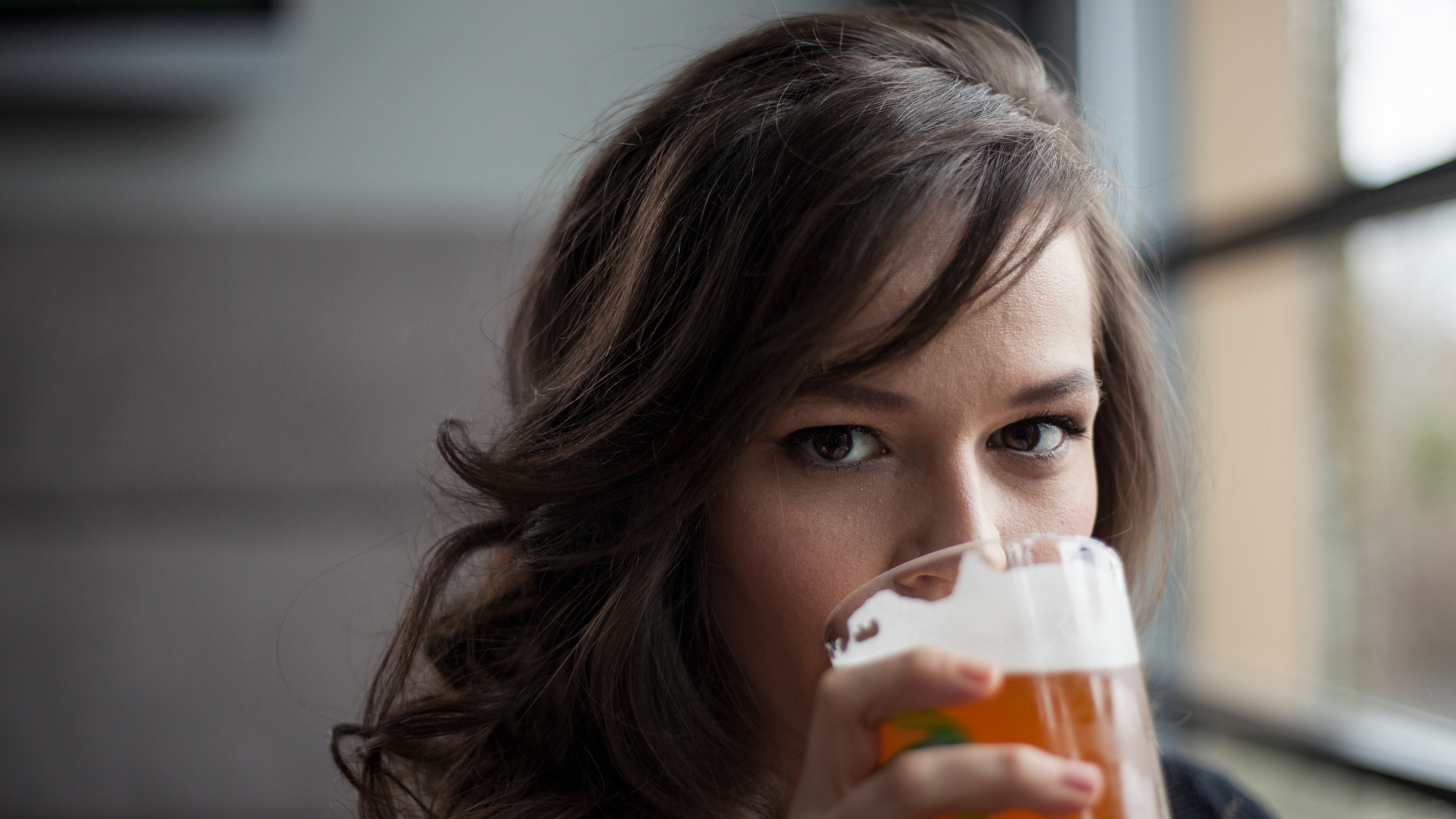Just Holding A Beer Makes Women Appear Less Human, Study Finds
A drunk woman is a particular kind of unseemly. She's often played for laughs—in movies, on reality TV, etc.—and the jokes typically build on the assumption that her drunkenness is tawdry in a way that a man's drunkenness is not. Men are jocular drunks; women are trashy, ribald drunks. New research, highlighted in The New York Times' In Her Words newsletter, found that a woman need only hold a beer in public—she doesn't even need to appear drunk—to be perceived as more sexually available and less human than if she was drinking water, or if she was a man drinking beer. In related news, I have developed a persistent eye twitch.
The study, published this month in the multidisciplinary, feminist-perspective journal Sex Roles, examined assumptions about women drinking alcohol through the lens of dehumanization. Through multiple experiments, the researchers tested the views men and women formed of a woman, depicted in photo and fake social media posts with a bottle of beer or a bottle of water; they also measured that against the perceptions of a man with a bottle of beer versus a bottle of water. Researchers concluded the woman pictured with beer was viewed as more sexually available as well as "less human" than the women drinking water, meaning she was seen as superficial, less intelligent, and lacking in self-restraint. A bottle of beer pictured with a man did not lead to the same dehumanizing effects. Notably, the biases were present in both male and female study participants. As a woman who drinks beer in public both for work and socially, this disturbs me. It should disturb all of us.
The study's authors tell The New York Times their findings have "troubling implications," not just regarding social gender roles, but for how such gender roles play out in cases of sexual assault or harassment. Women pictured with the bottle of beer were considered by respondents to be more intoxicated than men pictured with the same bottle of beer; a woman's level of intoxication is sometimes a point of contention in sexual-assault trials. The researchers note that because women who are drinking publicly are perceived as sexually available, bystanders may be less likely to intervene in potentially dangerous situations, as they assume she's interested in casual or risky sex.
These biases deserve not only our investigation but our efforts in actively dismantling them. As the Times notes, recent high-profile sexual assault cases have called into question the victims' level of intoxication. But this study suggests that women need not even act drunkenly for others to perceive them as drunk, sexually available, and less human. It's a reminder not to let our assumptions about women's behavior and motives dissuade us from looking out for their safety—especially when they're at bars.
